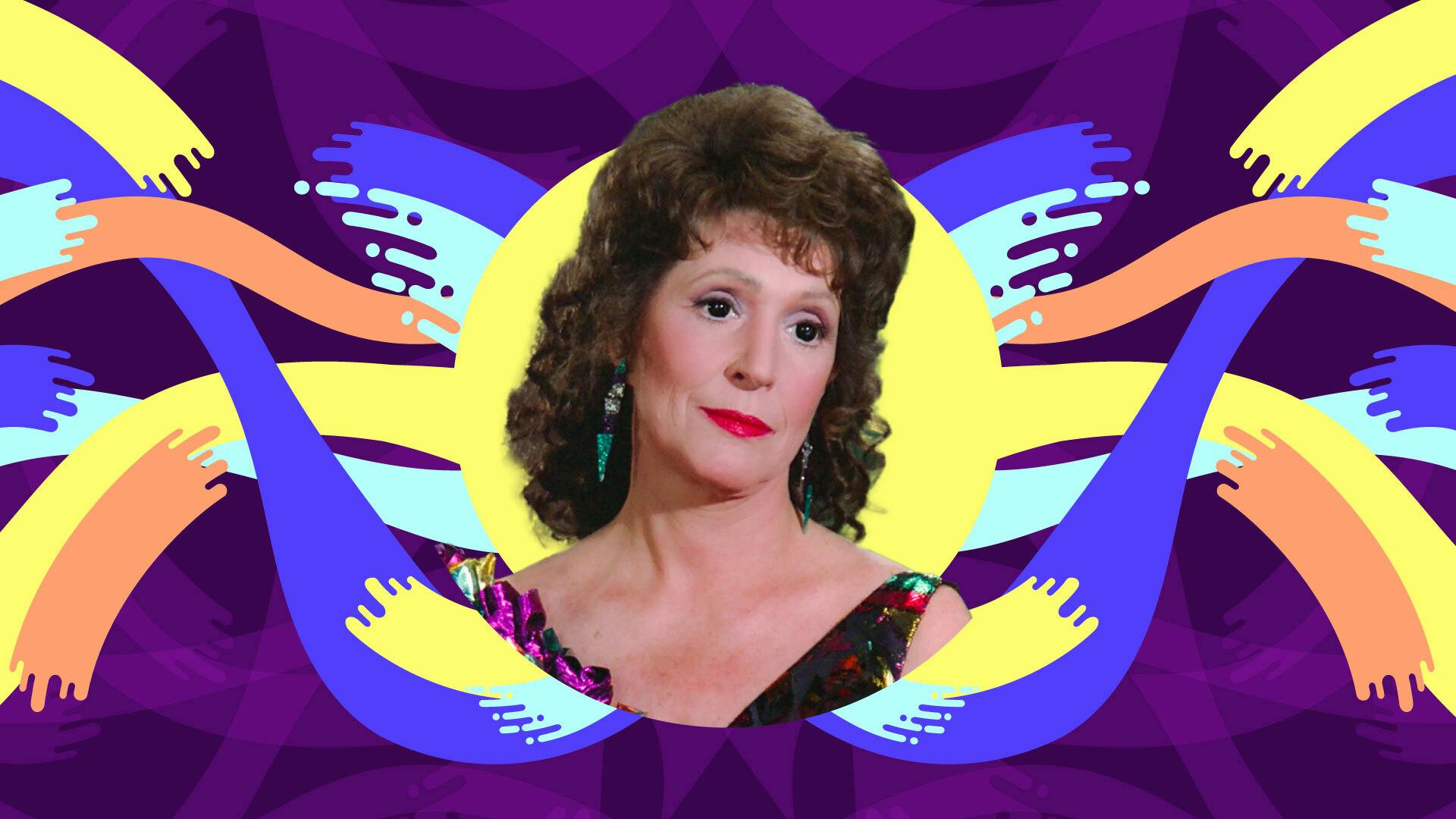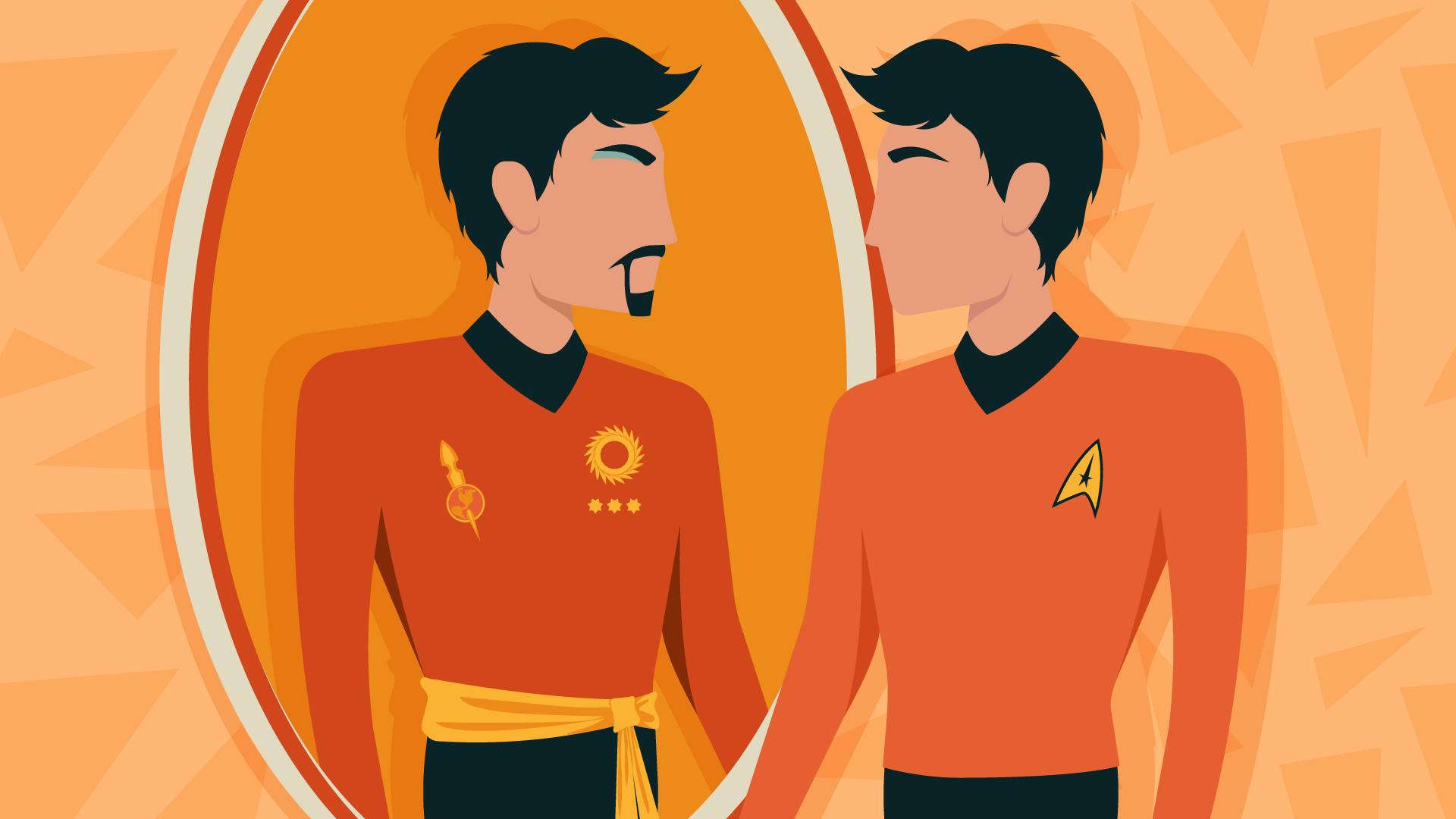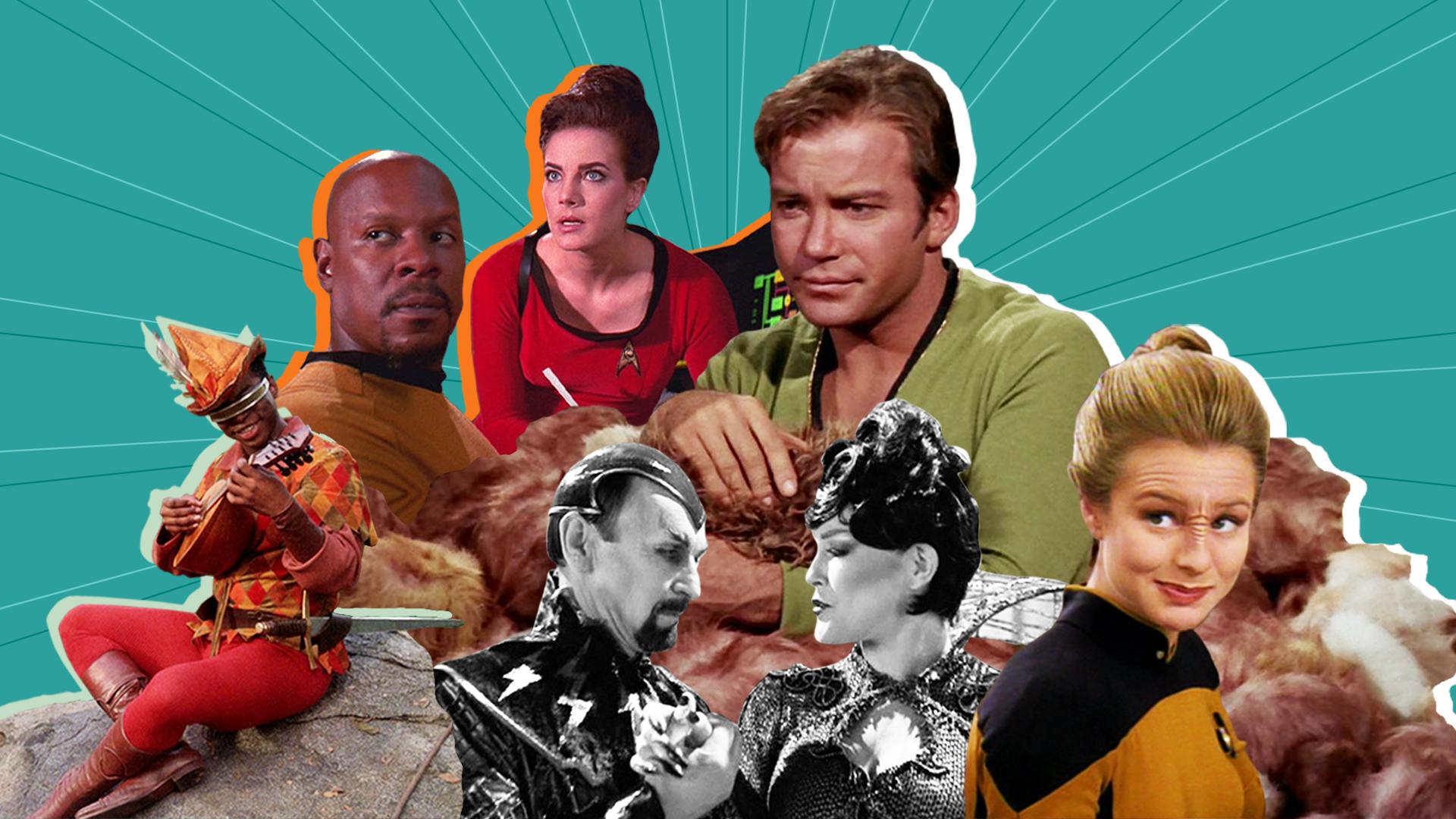Published Jun 20, 2023
A Look Back at 'In the Hands of the Prophets'
On its 30th anniversary, we revisit how the first-season finale further set in motion much of the intrigue surrounding the Bajorans, Prophets, politics and more!
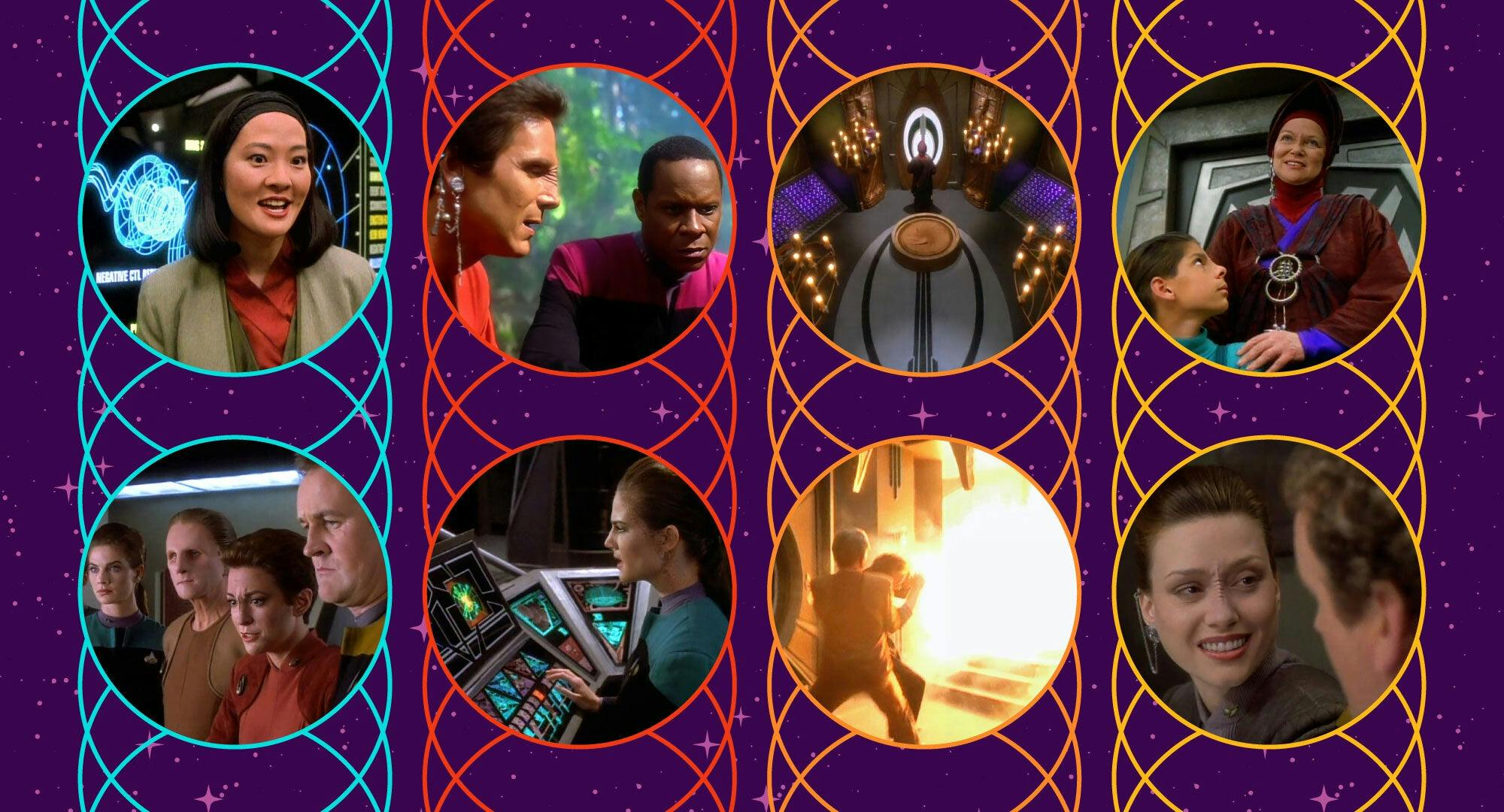
StarTrek.com
"In the Hands of the Prophets," the first season finale of Star Trek: Deep Space Nine, first premiered, 30 years ago today, on June 20, 1993.
The first-season finale further set in motion much of the intrigue surrounding the series' exploration of the Bajorans, Prophets, wormhole that linked the Bajor system to the Gamma Quadrant, politics, and fundamentalism that would steadily build to a head six seasons later with the series finale, "What You Leave Behind."
To mark the episode's anniversary, StarTrek.com dips into its creation, production, and legacy.
The First Appearance of Winn Adani
"You are opening the children's minds
to blasphemy. And I cannot permit it to continue."
— Vedek Winn

StarTrek.com
Oscar-winning actress Louise Fletcher made the first of her 14 appearances as Vedek Winn Adani in this episode. Speaking with StarTrek.com during a 2012 interview, Fletcher noted her character's driving force, "Power. She wanted power and she was ambitious. She was sort of a Margaret Thatcher in space, or, as I used to say, I was the Pope in space. People would say, 'Oh, you’re doing Star Trek. Who are you playing?'"
"I’d say, 'Think the Pope in space,'" continued Fletcher. "Except she’s like an ancient Pope, from the old days when Popes were ruthless and powerful and exerted their powers and fought wars and did all kinds of naughty things.”
Unlike the Others
"Seek the Prophets!"
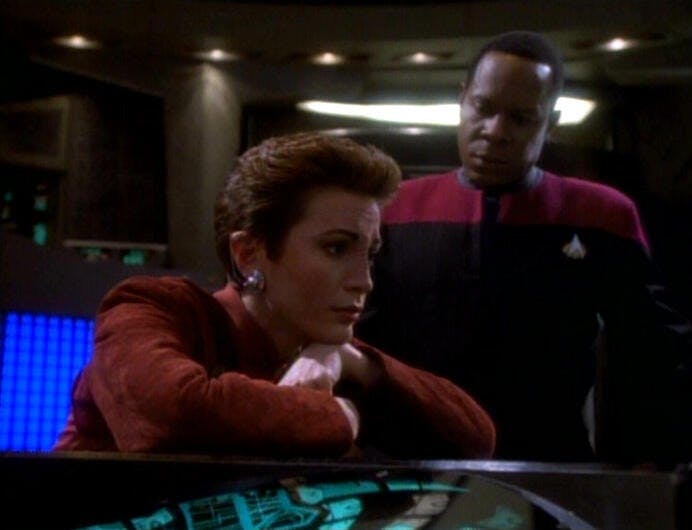
StarTrek.com
The only Deep Space Nine season finale, not written or co-written by series executive producer and writer Ira Stephen Behr, "In the Hands of the Prophet," penned by Robert Hewitt Wolfe, also bucked tradition by forgoing the use of a cliffhangers for season finales.
"I didn't feel coming off the excitement of the pilot, and the newness of the series, that we had to do a cliffhanger," explained series co-creator and executive producer Michael Piller.
With its opener "Emissary" and the finale "In the Hands of the Prophets," the first season effectively reexamines the relationship between Bajor and the Federation, as well as the relationship between Major Kira and Commander Sisko.
Bajoran Culture
"Now I see that you want
nothing less than to destroy us.
You live without a soul, Commander.
You and your Federation exist
in a universe of darkness,
and you would drag us in there with you.
But we will not go."
— Vedek Winn
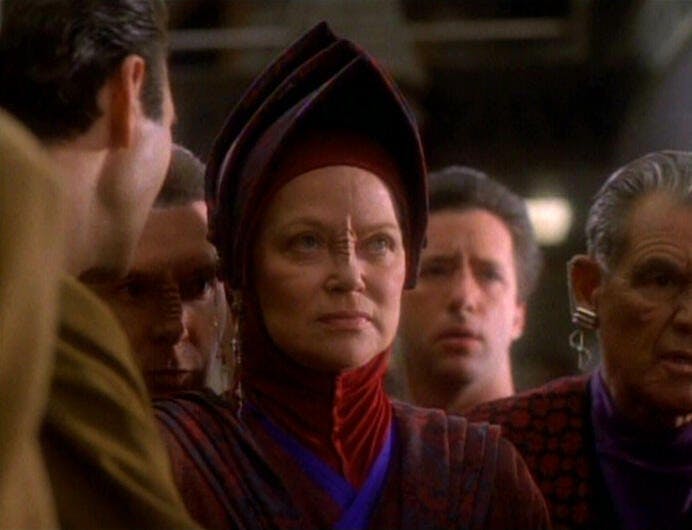
StarTrek.com
Behr saw "In the Hands of the Prophets" as an opportunity to explore the Bajoran spiritual life throughout the series' progression, with the first-season finale tackling the Bajoran religio-political system.
In the March 1994 issue of The Official Star Trek: Deep Space Nine Magazine, series' actor Colm Meaney praised "Captive Pursuit" and "In the Hands of the Prophets" as his favorite episodes from the first season, specifically calling their focus on fundamentalism. Meaney shared support of the series "carrying on that tradition" of Star Trek tackling contemporary, real world issues.
Collective Coexistence
"It is my philosophy that on this station
there is room for all philosophies."
— Benjamin Sisko
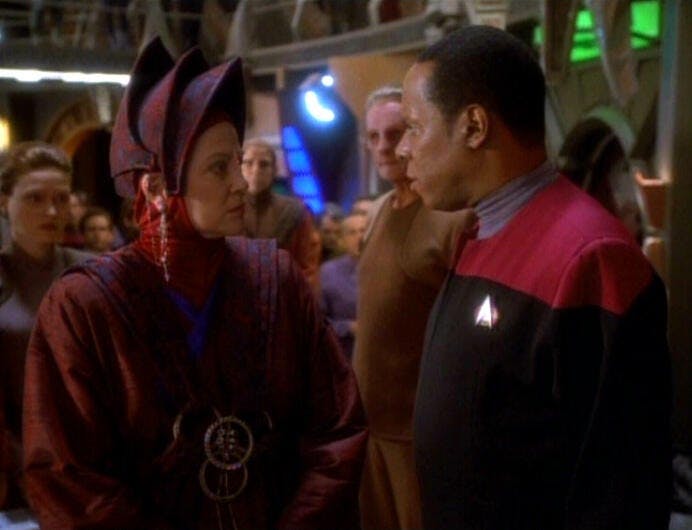
StarTrek.com
If only it were that easy.
Having settled on the Deep Space 9 space station, in the episode, Commander Sisko passionately states, "The Bajorans who have lived with us on the station, who have worked with us for months, who helped us move this station to protect the wormhole, who joined us to explore the Gamma Quadrant, who have begun to build the future of Bajor with us, these people know that we are neither the enemy nor the devil. We don't always agree. We have some damned good fights in fact, but we always come away from them with a little better understanding and appreciation of each other."
Piller saw Wolfe's "In the Hands of the Prophets" script as an opportunity to "bookend" the first season with the series' premiere "Emissary," as the friction between the Federation and the Bajorans came to a head with "a confrontation that seems to have been coming all along when we met these people and found out what their lives were like."
On the depictions of fundamentalism, Wolfe remarked, "I have a serious objection to people trying to impose their values on other people. And that's what this episode is about. No one has the right to force anyone to believe the things that they believe."
"That's one of the beautiful things about Gene Roddenberry's vision of IDIC (Infinite Diversity in Infinite Combinations)," Wolfe further elaborated. "And that was one of the things that we really wanted to hammer home here. Sisko does everything not to impose his values on the Bajorans, but Vedek Winn is determined to impose her values on everyone."


